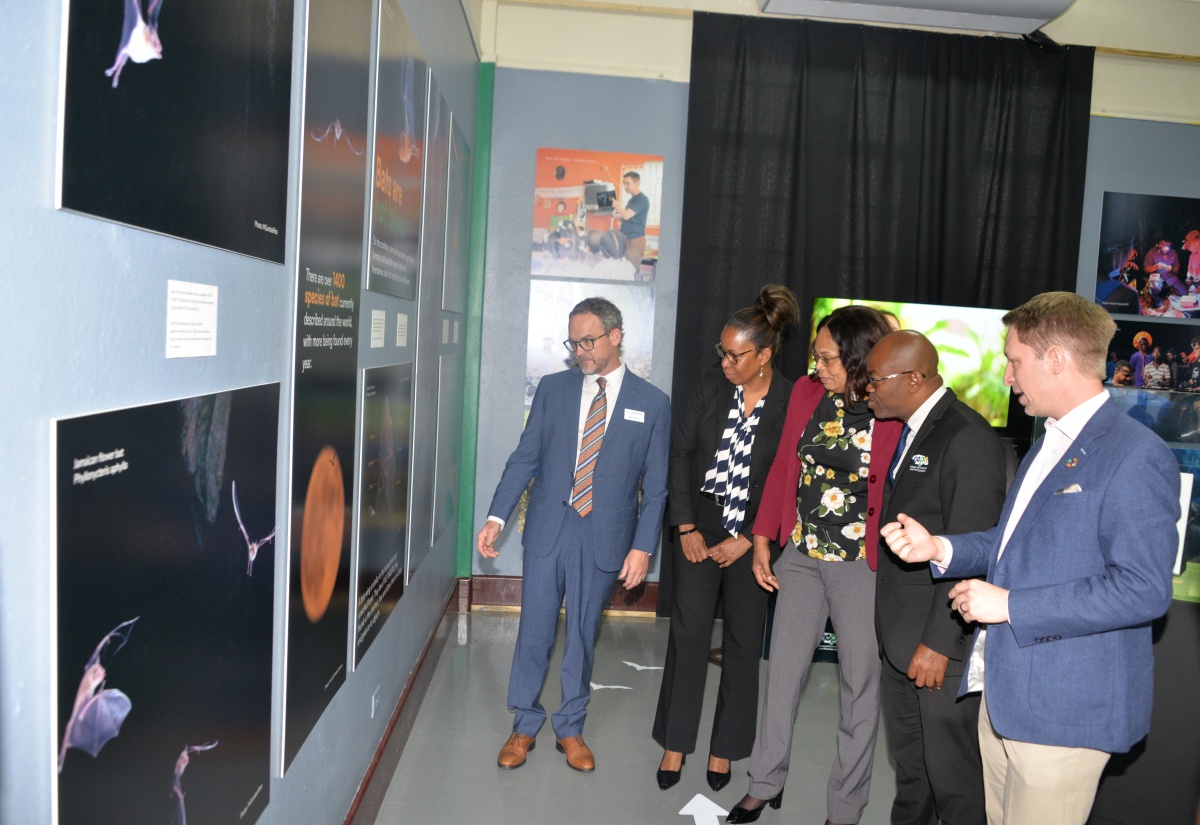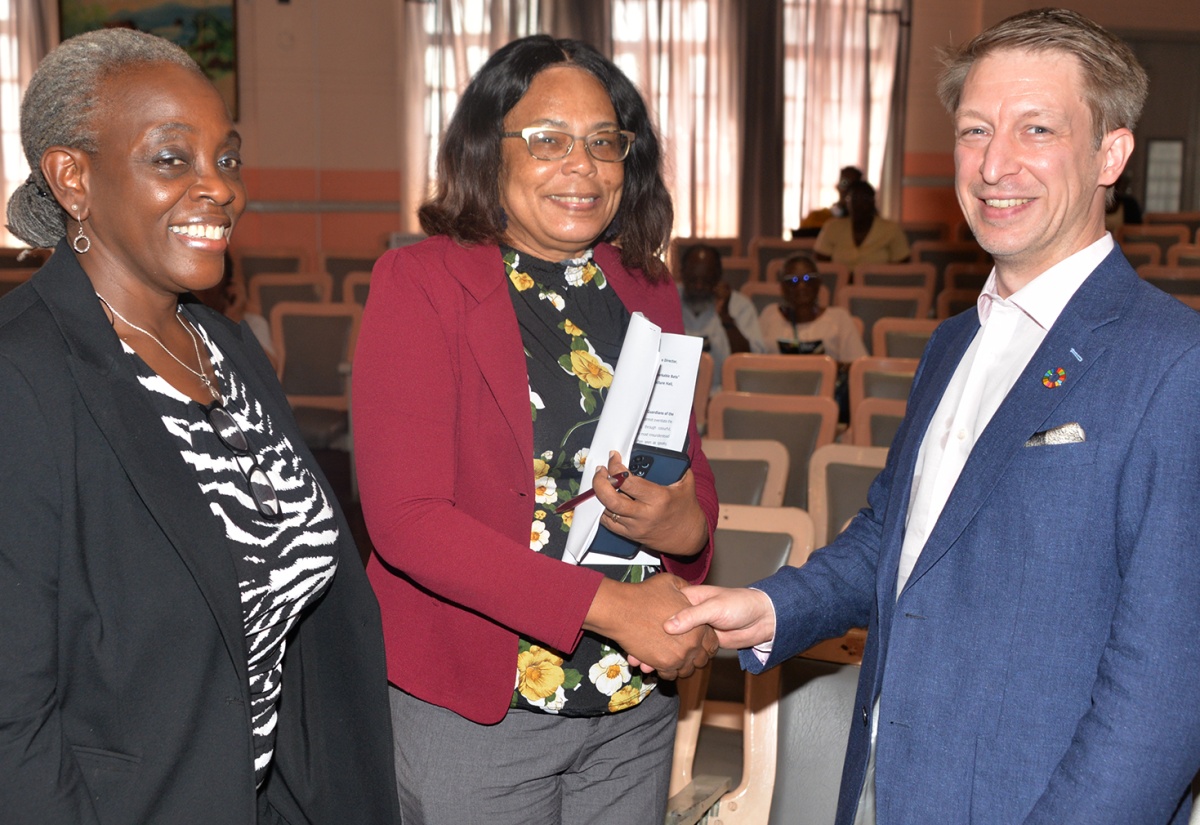Jamaicans Urged to Preserve Vital Bat Population
By: , June 20, 2025The Full Story
Jamaicans are being urged to help preserve the country’s bat population, which plays a vital role in safeguarding biodiversity and ensuring the stability and resilience of ecosystems.
Executive Director of the Institute of Jamaica (IOJ), Michele Creed-Nelson, made the call while addressing the launch of the new exhibition, titled Guardians of the ‘Night: Celebrating Jamaica’s Remarkable Bats’, at the IOJ, located downtown Kingston, on Wednesday (June 18).
Mounted by the Natural History Museum of Jamaica (NHMJ), which is a division of the IOJ, the educational exhibit is aimed at raising public awareness about the ecological importance of bats and dispel widespread myths surrounding them.
It highlights the island’s diverse bat population, including two critically endangered species found in a limited number of caves.
Jamaica is home to 21 bat species, including five found nowhere else on Earth, and eight others found only in the Caribbean.
Mrs. Creed-Nelson said that bats are often misunderstood.
“These animals are not pests, they are pollinators. They are not to be chased away. They are seed spreaders, forest regenerators, and natural pest controllers,” she pointed out.
Mrs. Creed-Nelson noted that increased human intrusion, urbanisation, and habitat destruction continue to threaten bat populations across the island.
“Our responsibility is clear; we must preserve these vital spaces. If we act, we can preserve the species themselves,” she said.
Mrs. Creed-Nelson noted that the exhibition, which involves collaboration with Bat Conservation International (BCI) and the National Environment and Planning Agency (NEPA), reflects years of conservation work.
It is designed to be informative and engaging, particularly for younger audiences.
“I cannot overstate the significance of this exhibition, which brings to life, through colourful, dramatic, and thoughtfully creative displays, one of the most misunderstood yet vital creatures of our environment,” Mrs. Creed-Nelson said. “It is our job, as guardians of this knowledge, to ensure that future generations understand the importance of conservation of the species,” she added.
Chief Executive Officer of NEPA, Leonard Francis, hailed the exhibition as timely and impactful.
“This is a celebration of one of nature’s most fascinating and essential creatures,” he said, pointing out that bats play a significant role in pollination, seed dispersal, and insect control.

Mr. Francis noted that bats are often misunderstood due to cultural and religious associations.
“Culturally, Jamaicans have been socialised to fear the dark, and because bats are nocturnal… they have been associated with being a creature of the night,” he said.
He noted that Bat Conservation International, which has worked in Jamaica since 2018, has “given a lot of financial and technical assistance to the conservation of bats in this small and beautiful island of Jamaica”.
Mr. Francis highlighted the urgent need to protect endemic species, including the critically endangered Jamaican funnel-eared bat, adding that, “each of us has a role to play in protecting the delicate balance of life that sustains us all”.
The exhibition opened to the public on Thursday (June 19) and will run for six months.
It is expected to welcome schools, research institutions and families interested in learning more about Jamaica’s wildlife heritage.
The bat exhibit is part of the IOJ’s ongoing work to promote environmental education and cultural heritage among Jamaicans.


